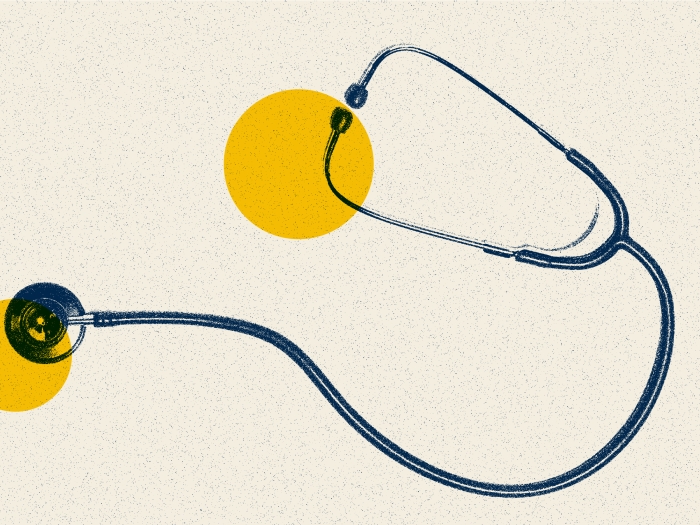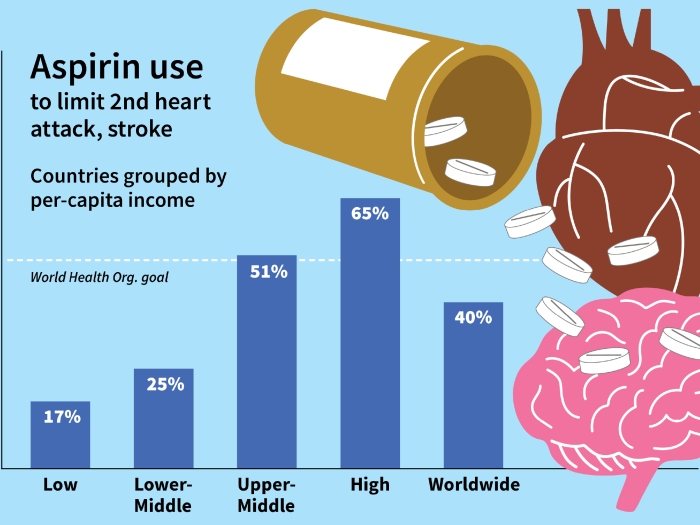For some patients, adding aspirin to a direct oral anticoagulant rarely adds up, a new study finds.
11:00 AM
Author |

More blood thinners aren't automatically better, another study confirms.
A new publication in JAMA Internal Medicine focuses on the minimal pros and the concerning cons of combining a daily aspirin with a drug from the newer class of anticoagulants that include apixaban, dabigatran, edoxaban and rivaroxaban.
Patients were taking one of these direct oral anticoagulants known as DOACs to prevent strokes from non-valvular atrial fibrillation or for the treatment of venous thromboembolic disease (deep vein thrombosis or pulmonary embolism). The included patients did not have another reason to take aspirin such as a recent history of a heart attack or a history of a heart valve replacement.
The researchers discovered that almost one-third of the people who were prescribed a DOAC were also taking aspirin without a clear reason for the aspirin.
"The patients on combination therapy were more likely to have bleeding events but they weren't less likely to have a blood clot," says lead author Jordan Schaefer, M.D., an assistant professor of internal medicine and a hematologist at Michigan Medicine. "Therefore, it's important that patients ask their doctors if they should be taking aspirin when they are prescribed a direct oral anticoagulant."
The combination of an anticoagulant and an antiplatelet may be appropriate for people who have had a recent heart attack, recent coronary stent placement or bypass surgery, prior mechanical valve surgery or known peripheral artery disease, among other conditions says co-author Geoffrey Barnes, M.D., M.Sc., an assistant professor of internal medicine and a vascular cardiologist at the Michigan Medicine Frankel Cardiovascular Center.
For the others, "combination therapy may not be happening intentionally; rather, the addition of aspirin might get overlooked because it's not in any one specialist or general care provider's territory," Barnes says.
The authors note that there are many medical conditions and situations where adding aspirin with a direct oral anticoagulant has not been adequately studied. Schaefer adds that they plan to confirm their study findings in a larger, longer study because there were not many blood clots that occurred during the timeframe of this study, potentially limiting their ability to assess if aspirin could be beneficial.
Previously, Schaefer and Barnes also reported a significant increase in adverse outcomes for people taking both aspirin and warfarin, a different kind of anticoagulant.
SEE ALSO: More Than One-Third of Patients Risk Major Bleeding By Doubling Up on Blood Thinners
Schaefer originally presented these registry-based cohort study results at the 2019 annual meeting of the American Society of Hematology.
Paper cited: "Adverse Events Associated with the Addition of Aspirin to DOAC Therapy Without a Clear Indication," JAMA Internal Medicine. DOI: 10.1001/jamainternmed.2021.1197

Explore a variety of health care news & stories by visiting the Health Lab home page for more articles.

Department of Communication at Michigan Medicine
Want top health & research news weekly? Sign up for Health Lab’s newsletters today!





